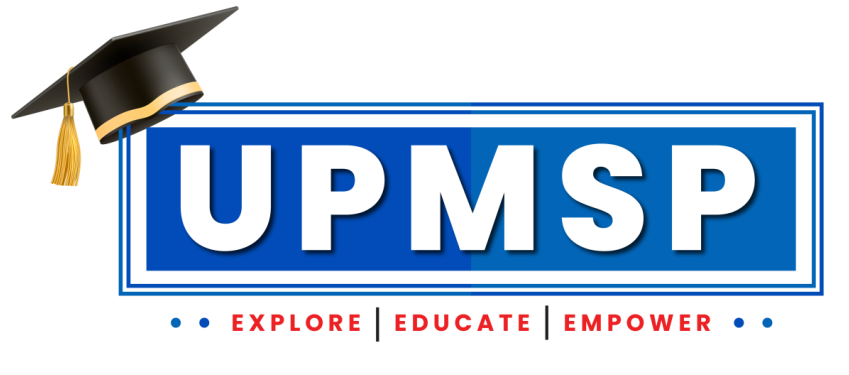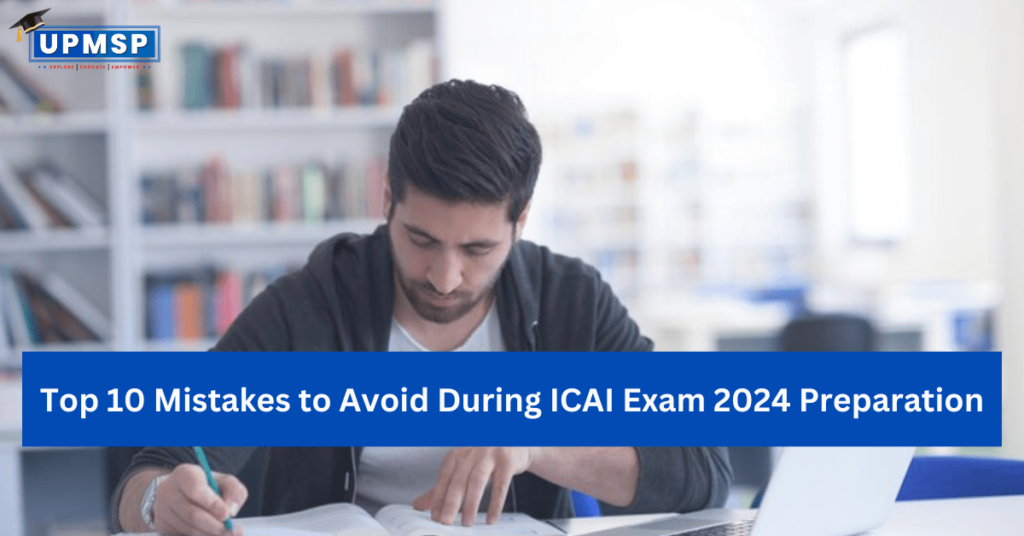The ICAI (Institute of Chartered Accountants of India) exams are among the most challenging professional examinations in the country. As the 2024 ICAI exams approach, candidates are gearing up for intensive preparation. However, many aspirants fall into common pitfalls that can derail their efforts. To ensure you make the most of your study time and perform your best, here are the top 10 mistakes to avoid during ICAI exam 2024 preparation.
1. Lack of a Study Plan
One of the biggest mistakes candidates make is not having a structured study plan. Preparing for the ICAI exams without a clear roadmap can lead to confusion and wasted time. A well-organized study plan helps in managing your time effectively and covering all the subjects systematically. Break down your syllabus into manageable chunks, allocate specific times for each topic, and stick to your schedule.
2. Ignoring the ICAI Study Material
ICAI provides comprehensive study material that covers the entire syllabus in detail. Some students, however, tend to rely solely on coaching notes or reference books. Ignoring the official study material can be detrimental as it is specifically designed to align with the exam pattern and covers all the critical areas. Make sure to thoroughly go through the ICAI material before referring to any additional resources.
3. Procrastination
Procrastination is a widespread issue that impacts numerous students. Delaying your study sessions can lead to last-minute cramming, which is ineffective and stressful. Avoid putting off your studies and make a habit of consistent daily preparation. Even if it’s just a few hours a day, regular study sessions are far more beneficial than sporadic, intense study marathons.
4. Neglecting Practical Subjects
Many students focus heavily on theoretical subjects and neglect practical ones like Accounting, Auditing, and Taxation. Practical subjects require regular practice and understanding of concepts through application. Ensure you dedicate adequate time to practicing problems and understanding practical applications to avoid getting caught off guard during the exams.
5. Over-Reliance on Coaching Classes
While coaching classes can provide valuable guidance and insights, over-relying on them can be a mistake. Coaching classes should complement your self-study, not replace it. Active self-study, revision, and practice are crucial to deeply understand the subjects and perform well in the exams. Use coaching as a tool to clarify doubts and reinforce your preparation, but don’t depend on it entirely.
6. Not Practising Past Papers
One of the best ways to prepare for the ICAI exams is by practicing past exam papers. This helps you get familiar with the exam format, types of questions, and time management. Many students make the mistake of focusing solely on theory and neglecting past papers. Incorporate solving past papers into your study routine to build confidence and improve your exam technique.
7. Ignoring Health and Well-being
Intense exam preparation can take a toll on your physical and mental health. Ignoring your health can lead to burnout, decreased concentration, and reduced efficiency. Ensure you get adequate sleep, eat nutritious food, exercise regularly, and take breaks to relax. A healthy mind and body are essential for optimal performance during your preparation and on exam day.
8. Not Clearing Doubts Promptly
Accumulating doubts and not resolving them promptly can create confusion and gaps in your understanding. Don’t hesitate to ask questions and seek help from your teachers, peers, or online forums. Clearing your doubts as soon as they arise ensures a strong grasp of concepts and prevents misunderstandings during the exams.
9. Ineffective Revision Strategy
Revision is a critical part of exam preparation, but many students don’t have an effective revision strategy. Merely re-reading notes is not enough. Active revision techniques such as summarising information, creating mind maps, and teaching concepts to others can be more effective. Regularly revising the topics you have already covered ensures better retention and recall during the exams.
10. Underestimating the Importance of Mock Tests
Mock tests are invaluable tools for exam preparation. They simulate the actual exam environment, helping you practice time management and build exam-day confidence. Some students underestimate their importance and skip them. Make it a point to take several mock tests under timed conditions to assess your preparation, identify weak areas, and improve your performance.
Conclusion
Preparing for the ICAI exams requires a strategic approach, dedication, and consistency. By steering clear of these common mistakes, you can improve your preparation and boost your chances of success. Remember, the journey to becoming a Chartered Accountant is challenging, but with the right mindset and preparation, you can achieve your goal. Stay focused, stay disciplined, and best of luck with your ICAI exam 2024 preparation!
FAQs
Here are five frequently asked questions (FAQs) related to preparing for the ICAI exams:
Q. How should I create an effective study plan for the ICAI exams?
A. Creating an effective study plan involves breaking down the syllabus into manageable sections, allocating specific time slots for each subject, and incorporating regular revision sessions. It’s essential to balance theory and practical subjects and ensure adequate time for solving past papers and mock tests.
Q. What should I prioritize in my study material – coaching notes or ICAI study material?
A. While coaching notes can provide additional insights, it’s crucial to prioritize the official ICAI study material. This material is specifically designed to cover the entire syllabus comprehensively and aligns closely with the exam format and question patterns.
Q. What strategies can I use to manage my time effectively while preparing for exams?
A. Effective time management involves creating a daily or weekly study schedule, setting realistic goals, and sticking to deadlines. Rank tasks according to their significance and level of difficulty. Regular breaks, adequate sleep, and maintaining a healthy lifestyle also contribute to effective time management.
Q. Is it necessary to solve past exam papers and take mock tests?
A. Yes, solving past exam papers and taking mock tests are essential components of exam preparation. They help familiarise you with the exam format, practice time management, identify weak areas, and build confidence. Regularly reviewing and analyzing your performance in mock tests can significantly enhance your preparation.
Q. How should I handle stress and maintain my well-being during exam preparation?
A. To manage stress and maintain well-being, prioritize self-care practices such as regular exercise, healthy eating, adequate sleep, and relaxation techniques like meditation or deep breathing exercises. Take breaks during study sessions, stay connected with friends and family for support, and avoid excessive caffeine or stimulants that can affect your sleep and concentration.
You Can check exams related updates on upmsp.org




